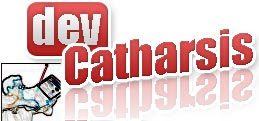in: infoq
The new Dynamic Language Runtime (DLR) adds a small set of key features to the CLR to make it dramatically better. It adds to the platform a set of services designed explicitly for the needs of dynamic languages. These include a shared dynamic type system, standard hosting model and support to make it easy to generate fast dynamic code. With these additional features it becomes dramatically easier to build high-quality dynamic language implementations on .NET. More importantly, these features enable all of the dynamic languages which use the DLR to freely share code with other dynamic languages as well as with the existing powerful static languages on the platform such as VB.NET and C#.For much as I hate dynamic languages, they are (again) here to stay. So this may be the time for me to stop rejecting them. Don't get me wrong, I still love my curly brackets strongly typed static languages, but this may be the time to start looking at the advantages these new implementations bring. If not for anything else, to have (again) much complaining to throw at them :)


No comments:
Post a Comment